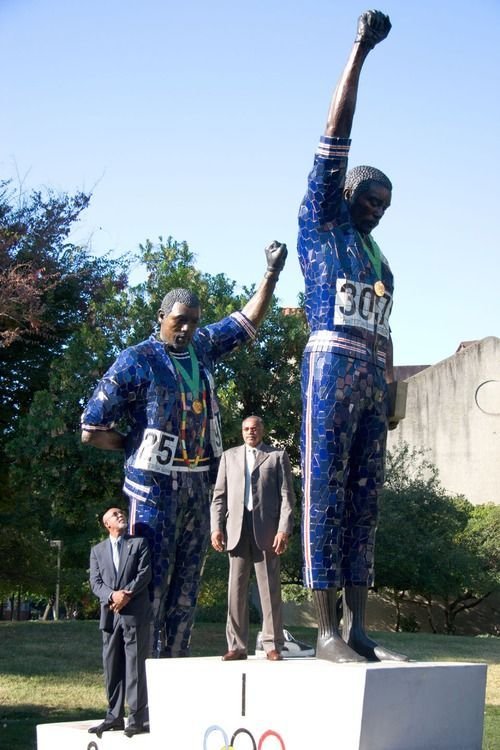The African American Heritage House
Has a history of community outreach, inclusion and contribution to the Santa Clara County and surrounding cities. They built the small Zanker house into a focal point for social and political participation.
Some the Activities were the
Red Hatters
Sweet Tea Fundraiser
Spoken Word presentations
Fashion shows
Historical Exhibits
Support for other Black organizations
The African American Heritage House Inc. board has shown dedication and resilience in sustaining the organization. They have navigated challenges and seized growth opportunities through teamwork and strategic planning. Their support for our programs reflects a commitment to preserving African American culture, fostering a vibrant community that honors our history and inspires future generations.
Honoring those who worked tirelessly to keep AAHH a viable part of the Black Community
Lula Briggs Galloway Founder 2008
Mattie Tinsley CEO 2009
Sandy Daley President 2008 - 2010
Debra Scott President 2008 - 2011
Helen Ellison Vice President 2008 -2024
Wanda Butler Secretary 2010 -2011
Bill Beadling. Secretary 2011 - 2018
Pam Farley Secretary 2018
Bob Walker Secretary 2009
Ocie Tinsley Treasurer 2009
Bob Stroughter Board Member 2010
Charlene Alexander Board Member 2009
Ellen Rollins Board Member 2008
Dan Hoffman Board Member 2014
Caritha Anderson Board Member 2014
Queen Ann Canon Advisory Board 2023
Al Farley Advisory Board 2018
- Know your history
- Know your history
When you know of your communities accomplishments in the past, it provides a blueprint for those that follow.
LEGACY
A Look Back at History
For Ribbs, whether he would succeed in motorsports was not a matter. It was
a must. His grandfather used to tell him and his cousin as they worked on their
grandfather's ranch, "You boys got one strike right now against you," Ribbs recalls,
adding that he never looked at them when he said this. His grandfather went on
to ask. "You know what that strike is?"
"You were born Black. That's one strike."
That conversation with his grandfather shaped how Ribbs approached life and
motorsports. Born in 1955, the California native was raised in the latter part of
the Jim Crow era. Many of the laws from that time were not
overturned until the Civil Rights Act of 1964 and the Voting Rights Act of 1965. His
grandfather built a successful plumbing business from the ground up, so
successful that Ribbs's father could pursue racing as a hobby. Ribbs knew as early
as 9 years old that he didn't want to manage the family business, setting his eyes
on the track despite the obstacles ahead.
Present and Future
BILL LESTER NASCAR DRIVER
Bill's path to NASCAR racing fame has been very different from that of most of the drivers that he competes against. Bill earned a Bachelor of Science Degree in Electrical Engineering and Computer Science from the University of California, Berkeley, in 1984, and used that to join the Hewlett-Packard Company (H-P).
While working for H-P, Bill won the SCCA Series Northern California Region Rookie of the Year title, and the SCCA GT-3 Regional Road Racing Championship in 1985 and 1986 respectively.
Then in 1989, Bill began racing in the International Motor Sports Association's (IMSA) GTO Series and several other sports car series in the United States. He would race just about anything to get track time and a chance to showcase his talents. During the late 1980's to the middle 1990's, Bill amassed four starts in the 24 Hours of Daytona and several starts in the SCCA Trans AM Series.
After many years with the Hewlett-Packard Company as a Project Manager, and racing on the weekends, Bill finally had a long conversation with his wife, Cheryl, and decided to go after his dream of becoming a professional racecar driver. So he quit his job in the high-tech industry, and began concentrating on his dream.
In 1999, Bill got his first big NASCAR chance when he got the opportunity to race at Watkins Glen, New York, in the NASCAR Busch Grand National Series. He had a solid run, starting in the 24th position, and moved into the top ten before finishing 21st after an on-track altercation with another competitor.
Present and Future
Legacy
John Carlos and Tommy Smith.
Track and field legends.
John Wesley Carlos (born June 5, 1945) is an American former track and field athlete and professional American football player. He was the bronze-medal winner in the 200 meters at the 1968 Summer Olympics Summer Olympics, where he displayed the Black Power salute on the podium with Tommie Smith. He tied the world record in the 100-yard dash and beat the 200-meter world record (although the latter achievement was never certified). The 1968 Olympics were in the middle of several significant events about the Civil Rights movement: Martin Luther King Jr. was assassinated on April 4, 1968, the Fair Housing Act law was passed on April 11, 1968, and the 1968 Olympics were in October 1968. At this time, countless protests around the country in response to the Vietnam War and US laws on individual human rights were being actively fought for. San Jose State University paid little attention to the housing and lack of scholarships or funds for the Track and Field team, which brought worldwide recognition to this small, unknown college in San Jose, California. The 1968 Olympics were broadcast nationally and internationally through television and radio, allowing athletes to share their thoughts on issues in front of a large audience. Acts of peaceful protest by famous athletes in sports are something that is still very prevalent in today's society











